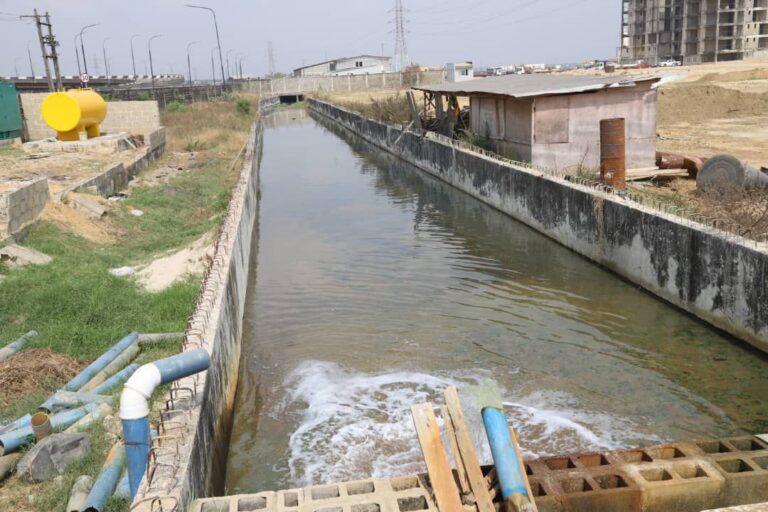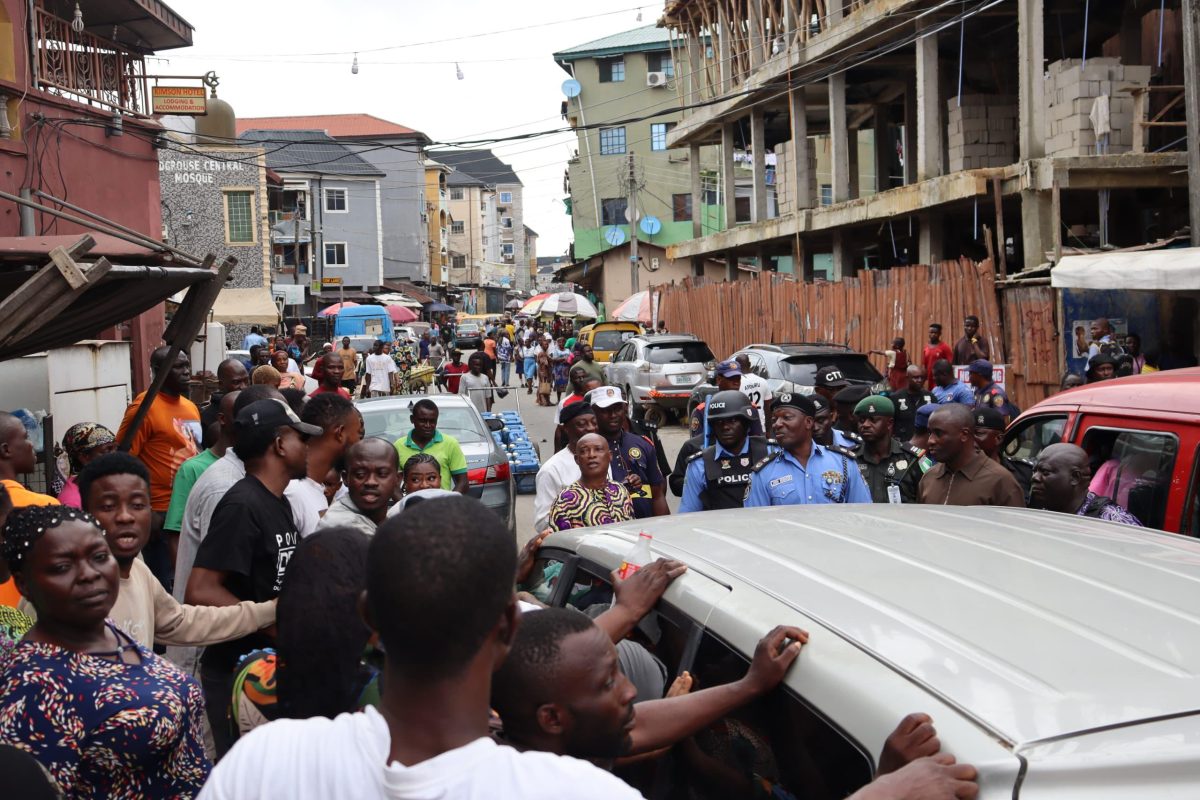In recent years, flash flooding has become a recurring nightmare for many Lagos residents. As skies darken and the heavens release torrential rain, what begins as a routine downpour often escalates into waterlogged roads, submerged homes, and disrupted daily life. While these events may seem sudden and random, they are part of a larger pattern driven by climate change, rapid urbanization, and poor waste disposal practices. Understanding the nature of flash flooding and the multi-faceted response of the Lagos State Government is key to building resilience and reducing the damage caused by such events.
Flash flooding, unlike gradual flooding, occurs swiftly after intense rainfall. Lagos, with its low-lying coastal geography, is particularly vulnerable. The city sits on the edge of the Atlantic Ocean, crisscrossed by a dense network of canals, rivers, and lagoons. According to climate experts, Lagos loses approximately three meters of its coastline annually due to rising sea levels. In this fragile ecosystem, every rainfall event can potentially unleash devastating floods.
Recognizing this reality, the Lagos State Government, under the leadership of Governor Babajide Sanwo-Olu, has taken deliberate steps to manage and mitigate the risks of flash flooding. The Ministry of the Environment and Water Resources, led by Honourable Commissioner Tokunbo Wahab, has implemented a range of proactive policies and infrastructure interventions to reduce the city’s flood vulnerability.
“Climate change is not just a global threat; it is our daily reality in Lagos,” said Commissioner Wahab at a recent media briefing. “We are seeing more erratic rainfall patterns, higher tidal movements, and more pressure on our drainage systems. But we are not folding our arms. We are acting.”
Building and Maintaining Drainage Infrastructure
The first line of defense against flash floods is an effective drainage system. The Ministry has maintained an all-year-round drainage maintenance program that ensures both primary and secondary drainage channels are routinely cleared of silt, debris, and refuse. In 2024 alone, over 666 kilometers of secondary collector drains were cleaned, and several primary channels were concretized to improve water flow.
One notable intervention is the construction of the Ilubirin Pumping Station on Lagos Island, a first-of-its-kind project in West Africa. “This station is designed to pump stormwater directly into the lagoon via an elevated channel,” Wahab explained. “It represents our commitment to building climate-resilient infrastructure.” Just Saturday of last week, the ministry completed the test run of the pumping station.
A X user, José of Lagos lent credence to the good work being done when he tweeted; “Rain fell for hours on saturday morning and the usual flooding at Aboru and Abule Oki was nowhere to be found.” He also said thanks to the commissioner and the state government.
In addition, the Emergency Flood Abatement Gang (EFAG), a special unit within the Ministry, has been deployed to respond rapidly to emerging flash flood hotspots. In the first half of 2025, EFAG cleaned and maintained over 166 kilometers of drainage across the state, focusing on dark spots and flood-prone areas.
Managing Waste to Prevent Drain Blockage
Another significant contributor to flash flooding is the improper disposal of waste. Lagosians often dump refuse into gutters, canals, and drainages, causing blockages that prevent the free flow of stormwater. This careless act is one of the key triggers of flash flooding, even after short periods of rainfall.
“We cannot overemphasize the need for behavioral change,” Wahab emphasized. “Government will play its part, but citizens must take responsibility. When you throw a sachet into the drain, you are helping to flood your street.”
To support waste management efforts, over 15,000 street sweepers have been deployed across the city, while PSP operators continue door-to-door waste collection. The Lagos State Waste Management Authority (LAWMA) works in tandem with these operators, monitoring service delivery and responding to black spots where waste accumulates.
Early Warning Systems and Climate Monitoring
Preparedness is key to reducing flood-related damages. The Lagos State Government has invested in a network of Automatic Weather Stations and River Gauging Stations located across the state, including in Majidun-Awori, Falomo, and Kara. These systems provide real-time data that informs early warning alerts to residents and helps the government plan flood response activities.
According to Wahab, “We are not just waiting for the rain. We are monitoring the weather every day. Our systems track water levels, rainfall intensity, and tidal movements to alert us when the risk is high.”
Public Awareness and Enforcement
Alongside infrastructure and technology, public awareness and enforcement play a crucial role. The Ministry has launched aggressive campaigns to educate residents on proper waste disposal, the importance of using pedestrian bridges, and the dangers of illegal trading on road setbacks and medians.
The Lagos Environmental Sanitation Corps (LAGESC) and Kick Against Indiscipline (KAI) regularly patrol flood-prone areas, arrest violators and ensure compliance with sanitation laws. Over 3,000 offenders were arrested for environmental violations in the past year alone.
“Enforcement is not about punishment,” Wahab said. “It is about deterrence. We are using the law to drive behavior that protects lives and property.”
In January 2024, the state implemented a landmark ban on the use of Styrofoam food packs, one of the most common items clogging drains. The Commissioner noted that subsequent drainage clearances have markedly reduced Styrofoam waste.
“We have also set July 1, 2025, as the date for full enforcement of the ban on all single-use plastics in Lagos,” Wahab said. “This is not just an environmental issue; it is a flood control measure.”
Why Flash Flooding Will Still Occur
Despite all these interventions, the commissioner has repeatedly warned that flash flooding cannot be eliminated, especially in a coastal city like Lagos. “During high tides, stormwater cannot discharge into the lagoon because the discharge points are locked up. This causes temporary flooding, which disappears once the water recedes,” he explained.
He added that global cities like New York, Mumbai, and Jakarta face similar challenges. “What we can do is reduce the duration and intensity of the flooding. That is what we are working on.”
What Citizens Can Do
Flash flooding is not solely a government issue. Citizens play a critical role in flood prevention. Sorting waste, patronizing licensed PSP operators, refraining from dumping refuse in drains, and obeying environmental laws are actions everyone must take.
“Lagos belongs to all of us,” Wahab concluded. “To build a flood-resilient city, everyone must be involved. Let’s stop blaming and start acting.”
Flash flooding in Lagos is a complex issue that requires a comprehensive and coordinated response. The state government, through its Ministry of the Environment and Water Resources, has shown that it is willing to take bold steps to address the challenge head-on. From infrastructure investment and law enforcement to behavioral change and international partnerships, Lagos is gradually building the resilience it needs to withstand climate-related risks.
However, no solution will be effective without the support and cooperation of residents. As climate change continues to reshape our cities, the collective responsibility to keep Lagos dry and safe has never been more urgent. In the words of Commissioner Wahab: “We are treating this like the crisis it is, because we owe it to our children to leave behind a Lagos that is safer, cleaner, and stronger.”
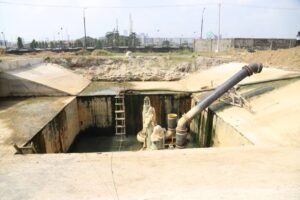
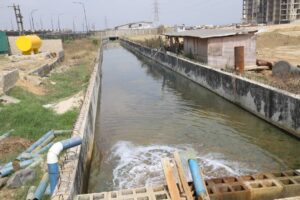
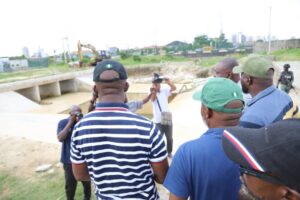
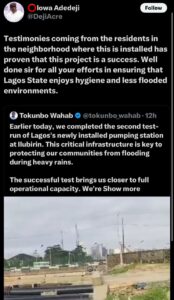


 BIG STORY5 days ago
BIG STORY5 days ago
 BIG STORY21 hours ago
BIG STORY21 hours ago
 BIG STORY19 hours ago
BIG STORY19 hours ago
 BIG STORY4 days ago
BIG STORY4 days ago
 BIG STORY4 days ago
BIG STORY4 days ago
 BIG STORY3 days ago
BIG STORY3 days ago
 BIG STORY3 days ago
BIG STORY3 days ago
 BIG STORY4 days ago
BIG STORY4 days ago




